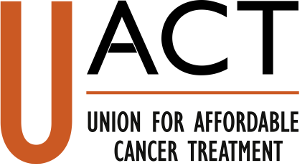UACT, KEI, and UAEM Request CMS Use Government 35 U.S.C. § 202 and 28 U.S.C. § 1498 Rights in Prostate Cancer Patents
On Tuesday April 9, 2024, the Union for Affordable Cancer Treatment (UACT), Knowledge Ecology International (KEI), and Universities Allied for Essential Medicines (UAEM) requested that the Centers for Medicare and Medicaid Services (CMS) use the rights afforded to the government in 35 U.S.C. § 202 and 28 U.S.C. § 1498 on patents on the prostate cancer drug Xtandi (enzalutamide). As noted in the request letter, “The U.S. government has a “world wide nonexclusive, nontransferrable, irrevocable, paid-up license to practice or have practiced for or on behalf of the United States any subject invention throughout the world” (35 USC § 202(c)(4)). This worldwide paid-up license canRead More →
